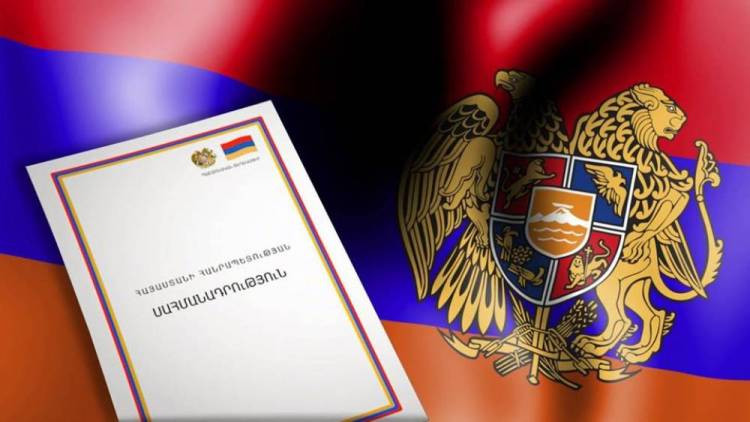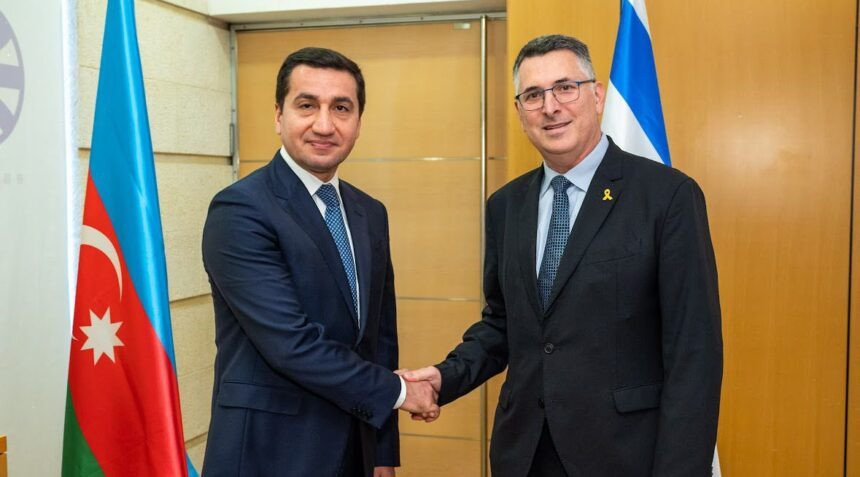A long road has been passed since Armenia and Azerbaijan were fighting a violent war that erupted in the wake of the deadlock in the peace negotiations for around three decades. As President Ilham Aliyev of Azerbaijan rightfully said, the chance for peace was eventually brought about by the war in 2020 that put an end to the occupation of the Azerbaijani territories. Having liberated its occupied territories, Azerbaijan immediately initiated a peace treaty with Armenia based on the fundamental principles of international relations, including mutual recognition of each other’s territorial integrity and non-use of force.
It is a telling fact that Azerbaijan put forward this initiative in March 2022, when the Armenian separatist regime still had some control over the parts of the Karabakh region where Russia’s peacekeeping mission was temporarily deployed. This clearly manifested Baku’s intention to peacefully reintegrate the Armenian population in the Karabakh region and diplomatically resolve the remaining disputes with Armenia.
This goodwill was, unfortunately, not properly reciprocated by the Armenian side. The refusal of the separatist leaders in the Karabakh region to meet Azerbaijani officials, the Armenian government’s continued military supplies to these forces, the reluctance to recognize Azerbaijan’s territorial integrity, etc. lead to the anti-terror operation in September 2023. This marked the definitive end of the Karabakh conflict and the restoration of Azerbaijan's territorial integrity – which opened up a historic window of opportunity for regional peace and security.
Unfortunately, the newfound chance for signing a peace treaty was overshadowed by Armenia and its supporters in the West making unfounded claims about Azerbaijan’s supposed plans to invade the southern part of Armenia. Despite Baku’s repeated denials, including President Aliyev’s rejection of these claims on numerous occasions, those disseminating them continued unabated, their objectives remaining unclear. Some argue that Armenia and its Western partners sought to legitimize the increasing military and political presence of the West in Armenia by using a potential Azerbaijani attack as a scapegoat. As recently as early June, Thomas de Wall, a prominent analyst on the South Caucasus, rather conspiratorially suggested that Azerbaijan is collaborating with Russia to invade Armenia. On the flip side, whether intentionally or not, these claims seriously undermine peace efforts by instilling fear in Armenian society, stirring them against initiatives for peace with their neighbor and fostering distrust in their intentions.
However, in the meantime, Baku and Yerevan have achieved an important progress in the journey towards a peace treaty and normalization of the bilateral relations. The launch of the delimitation of the interstate border and peaceful return of the four occupied border villages of Azerbaijan truly underscored the potential for peace between the two countries. There is now only one major impediment to the signing of a peace treaty which started to be discussed by President Aliyev immediately after the 2020 war. In an interview with a Turkish media channel on September 28, 2021, Aliyev declared, “There is a territorial claim against Türkiye [and Azerbaijan] in the Constitution of Armenia. They should abandon that. They need to revise and re-adopt their constitution… They must give up their claims against Türkiye and Azerbaijan”. The recent past of Armenia’s territorial claims against Azerbaijan urges Baku to make sure that no revanchist government in the future will have any legal pretexts to reignite the conflict.
In a crucial development for resolving the dispute, Armenia's Prime Minister Nikol Pashinyan has acknowledged the significance of the issue and attempted to address it. During a meeting with members of his political party on January 20 of this year, Pashinyan emphasized the necessity for Armenia and Azerbaijan to ensure that there are no grounds for future territorial disputes. He stated, “Diplomatic documents often carry nuanced implications and caveats. The fine print of Azerbaijan’s proposals, and potentially ours, highlights the risks of territorial disputes, whether immediate or looming.” He went on to calling for a new constitution, asserting that Armenia needs “a new constitution, not constitutional changes,” that would make the country “more competitive and viable in the new geopolitical and regional environment”.
To the detriment of the peace treaty talks, the Armenian government seems to have backpedaled from this position. The June 7 statement of the Armenian Foreign Ministry rejects the calls for removal of the territorial claims from the constitution and presents this demand as “a gross intervention into the internal affairs of the country”. They disregard the fact that the constitution of a state is no longer its exclusive internal affair if it contains territorial claims and legal grounds for a military conflict against another state.
Baku’s position on this matter is crystal clear as outlined by President Aliyev the day before the Armenian Foreign Ministry’s statement: Azerbaijan is not planning to sign a peace treaty with Armenia as long as this country’s state constitution holds claims against the territories of Azerbaijan.
“Azerbaijan has a legitimate right to demand the removal of this claim from the Constitution that directly affects our national security, and it cannot be labelled as an interference into Armenia’s internal affairs”, said Azerbaijan’s Foreign Ministry in response to the statement of the Armenian ministry.
It is true that a constitutional change is not an easy endeavor for the Armenian government, particularly given the present anti-government sentiments in Armenia. However, this cannot serve as an excuse to alter Baku’s stance on this crucial legal matter. Azerbaijan is not in a rush and can afford to wait for Armenia to amend its constitution before signing a peace treaty, as the two countries need a lasting solution to their conflict and eradication of its root causes.








